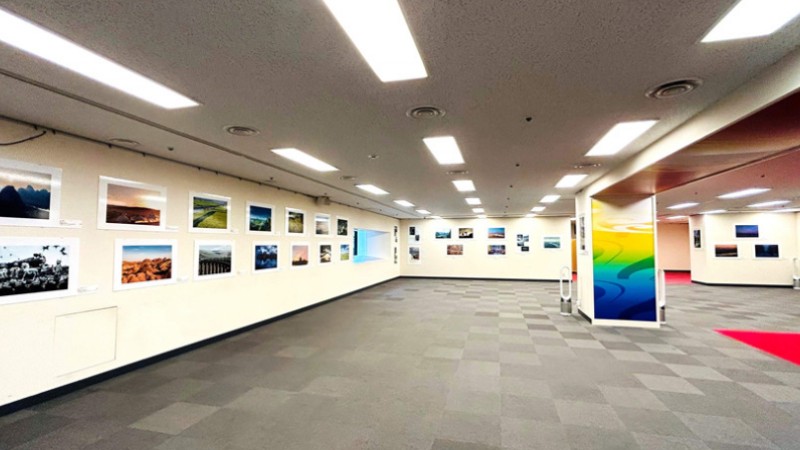Honey Watson: Translating out of love for contemporary Chinese literature
Acting as a bridge for cultural exchange, a growing number of young translators are now making Chinese literature accessible to a broader audience. On a rainy August day, People’s Daily Online travelled to North Yorkshire to meet the talented young translator of contemporary Chinese literature and science-fiction author, Honey Watson.
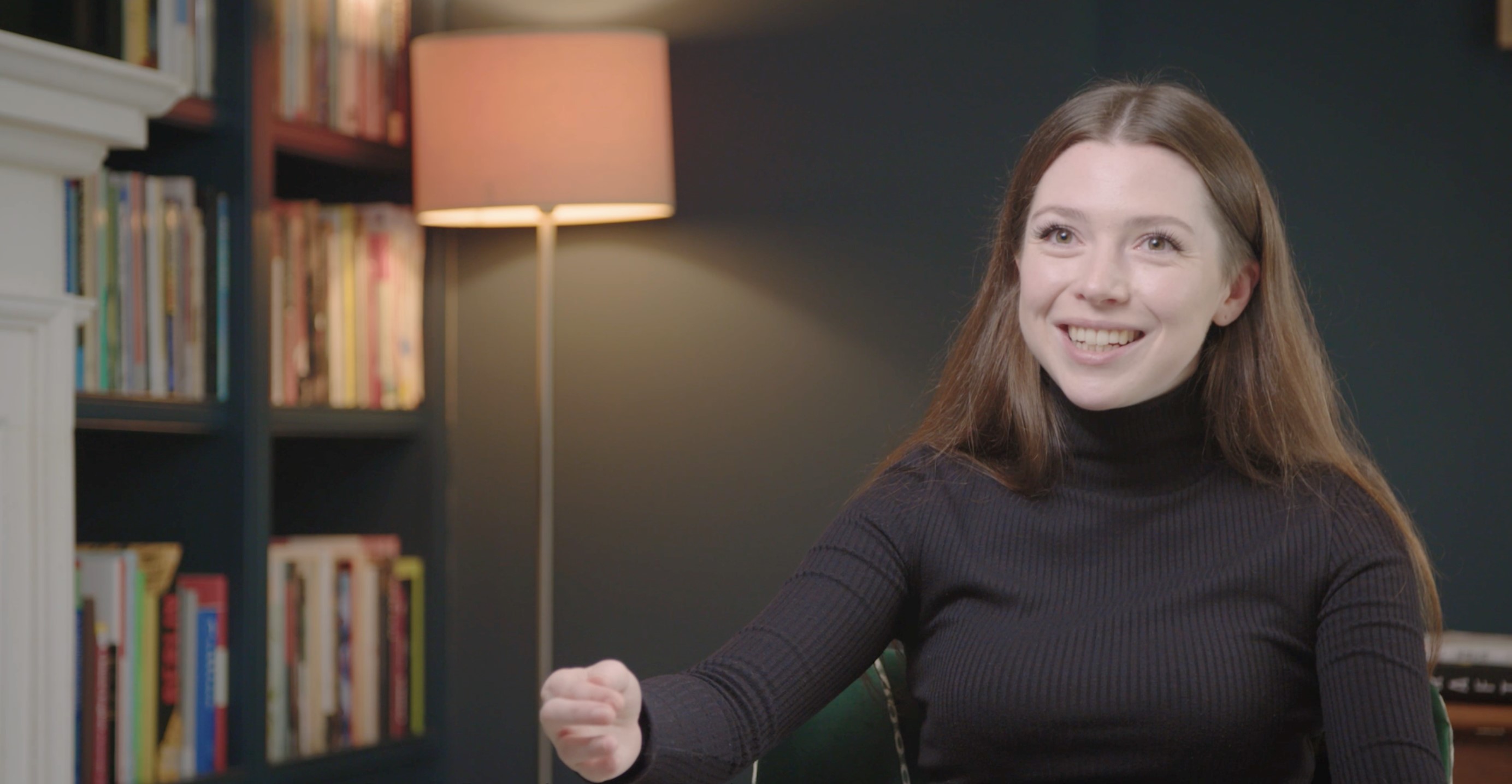
Honey Watson (Photo/Patrick Shead-Simmonds)
After Watson completed her undergraduate degree in Ancient History at University College London, she did a Master’s in Chinese Literature at Peking University. In fact, she went to Peking University to study Chinese History but was so moved by Lu Xun’s “Diary of a Mad Man”, translated by American sinologist William Lyle, that she asked the professor to change her major and started to translate on her own. Watson ended up doing a Ph.D. in Comparative Literature at NYU because of the love of Chinese Literature and the Chinese language instilled in her at Peking University, an experience she described as “life-changing”.
In recent years, Watson has introduced many works of contemporary Chinese literature, including Su Tong’s short stories, to the West. She is currently translating a short story written by Yao Emei. Her debut science-fiction novel “Lessons in Birdwatching” came out in August this year. Watson is passionate about contributing to cultural exchanges between the West and the East through translation and hopes to translate more works of contemporary Chinese literature in the future.
On a journey of translating contemporary literature
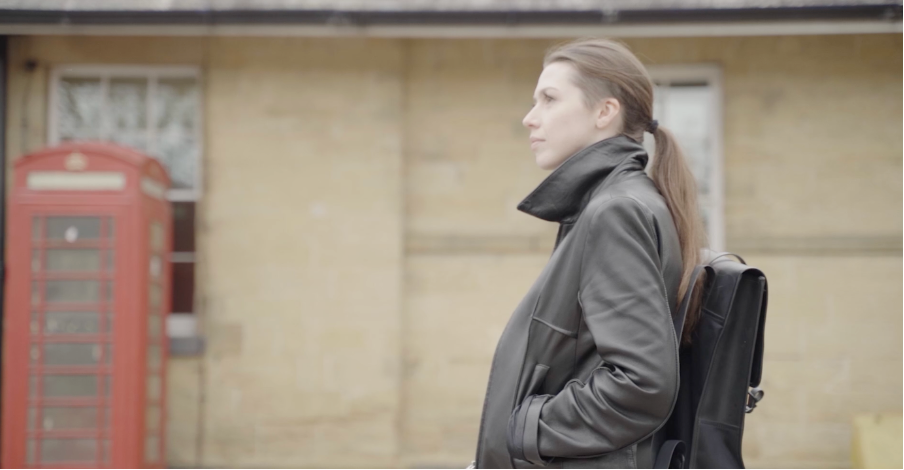
Honey Watson (Photo/Patrick Shead-Simmonds)
People’s Daily Online: As a young translator, how did you get the opportunity to translate Su Tong’s work?
Honey Watson: My first task as a translator was an incredible opportunity. During the third year of my Ph.D. at NYU, one of China’s most famous writers, Su Tong came to stay with us for a semester and he held a month- long seminar series to discuss with us the work he had written throughout his fantastic career. I provided English translations of a short story series called “Midnight Stories” as we went through the seminars. So, it was my first task as a translator. I was still a student and received a lot of help from professors, fellow students, and Su Tong himself. I loved translating contemporary Chinese literature and that is what I have been doing ever since.
People’s Daily Online: What are the similarities and differences between Su Tong’s novellas and the “Midnight Stories” that you have translated?
Honey Watson: Su Tong is most famous for his novellas. For example, “Rice”, “My life as Emperor” and obviously “Raise the Red Lantern”, which became an incredible movie. He is renowned for doing these character studies that tend to be about the darker side of humanity, about violent, unhappy things that happen to people. Even though these dark character studies are definitely in “Midnight Stories” that I had the chance to translate but what binds the series together is something more subtle.
The best way I could possibly describe this is the sensation of being quite young and seeing your toys in the dark and you cannot sleep at night. You are looking at all your toys, all these things that you love so much and bring you comfort. But in a different light, the toys suddenly start to scare you. It is a sensation that we all are aware of and have all experienced but difficult to convey from one adult to another; that is what Su Tong has managed to do in “Midnight Stories”. I think the story that embodies the binding characteristics of the series is “Wooden Radio”. It is only a few pages long about a doctor who goes home from work one day and everything just seems slightly strange to him. I am not saying anymore because that will be a spoiler and you all have to read it.
People’s Daily Online: Su Tong has been highly praised for his tactile depiction of female characters. What are your views on his portrayal of women and female consciousness?
Honey Watson: There are many male writers, who try to write about the feminine experience, and we laugh, but Su Tong is actually really good. In the series of short stories that I translated, there is one particular story called “Prettiest Angels”. It is about a friendship between two middle-school-aged girls and how that friendship becomes strained and changes over time as their lives go in different directions. Ultimately it engages with the experience of growing into a feminine body, from being a child to a woman, who is someone people will look at as an object of prettiness, as something to be desired. It explores how that sort of male gaze affects their intimate friendship with each other.
Translation as a mode of rewriting
People’s Daily Online: More recently, you translated Fan Wu’s novel “Souls Left Behind”. What does this novel explore?
Honey Watson: “Souls Left Behind” is a story set in 1917 about this educated young man, David. He is in an unwanted arranged marriage, runs away from home, and gets swept up in this recruiting. He ends up in France during World War I, digging trenches, fixing trains, and building railways to really help with the war efforts in France for the Allies. I cried serval times while I was translating it and I realised that as a translator you do get very close to the text. I did not know about this history of Chinese labourers during World War I. It is really an underappreciated, under-analysed, under-told part of history. So, it was a real honour for me to be able to translate that novel into English and hopefully bring this story to a much wider audience.
In terms of the process of translation, Fan Wu actually gave me homework; she was sending me off to read John Steinbeck and all these novels because for her it was very important that the translation process does not lose the sound of different vernacular accents in Mandarin. As “Souls Left Behind” follows this motley group of labourers from all different parts of China; they are not speaking standard Mandarin. So, we gave them all different local variations in their accents.
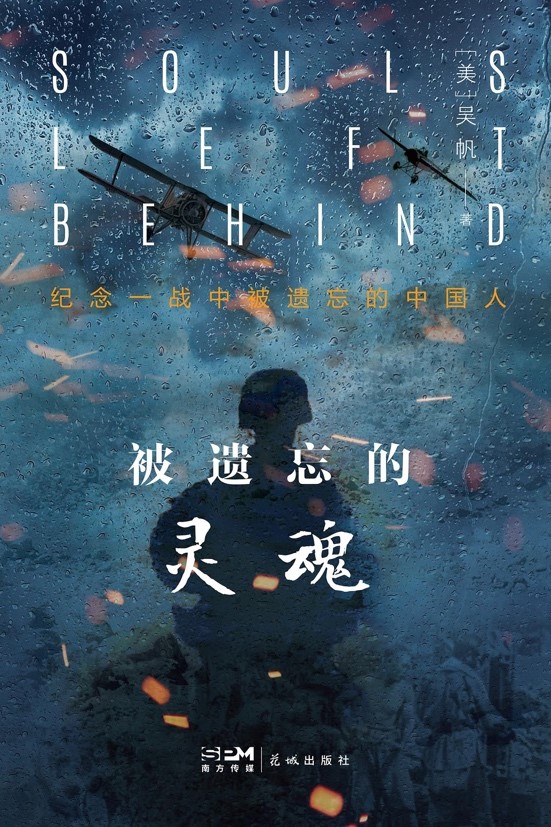
Book Cover of Souls Left Behind
People’s Daily Online: Some say translation is a form of co-authorship. What relationship do you believe that the translator shares with the author?
Honey Watson: Fan Wu always described translation as a mode of rewriting to me, which I thought was really interesting. With her, the task of translation was to create a seamless, smooth reading experience and to maintain the original accents of the labourers. My conversations with Fan are about maintaining banter, maintaining the strangeness of spoken Mandarin to a foreign reader without breaking the flow of reading.
But that is not to say my translation in one text will be the same. For example, in “Souls Left Behind”, the characters are constantly singing.
So, at one point there is a song that is sort of carnivalesque; David is using bamboo clappers to talk. Naturally, I ended up having to divert a little bit from the original meaning to keep the rhythm and rhyme.
The task of translating Su Tong is more to bring out the character of the language that he uses. He does not use standard grammar and he refuses to punctuate in the way that you would be taught to do at school. He will sometimes change the subject halfway through a sentence and leave the meaning of something completely ambiguous. Of course, he does this completely on purpose, but when you are conveying it in English, you cannot do it in the same way; what looks like purposeful rule-breaking in Mandarin looks insane in English.
People’s Daily Online: What work of contemporary Chinese literature are you currently translating?
Honey Watson: I am currently working on translating a story called “Skeletons in the Closet” in Yao Emei’s novella “Family Life”, which is about a young lady having an affair with an older man and worrying about whether his wife is going to find out. Each story is being translated by a different translator. I am really excited to see how this collection comes together and if readers can recognise the different quirks of each translator.
Launching debut novel “Lessons in Birdwatching”
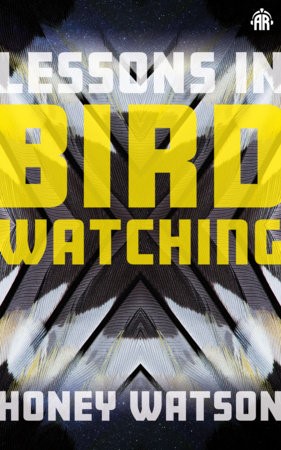
Book Cover for Lessons in Birdwatching
People’s Daily Online: As well as being a translator, you are also a science-fiction author. Could you tell us about your debut novel?
Honey Watson: My debut novel, “Lessons in Birdwatching”, came out on 8th of August this year. I particularly thought about cultural exchange and how we think about ourselves and history. Because if you think about the world now and the way we understand different cultures and each other, there are many fundamental aspects of history and mutual understanding, which are based on misunderstandings. So, to construct a new world for my science fiction novel, I thought about will people 2,000 years from now misunderstand what we are doing today and how will they use these histories? How will they think about their own identity in relation to us as their ancestors?
People’s Daily Online: What are your views on contemporary Chinese literature, in particular Chinese science-fiction?
Honey Watson: China is coming more into the world and people are more interested in contemporary Chinese literature. It is a discipline that is quickly developing. Whenever someone asks me what I do and I say, I am a Science-Fiction writer, I translate Chinese literature, they go “Three-Body Problem”; everyone loves the book. Ken Liu has done so much for Chinese Literature by translating the “Three-Body Problem” so well. The beauty and popularity of the “Three-Body Problem” is that now more and more work of current Chinese authors, particularly Chinese science-fiction authors are being translated into English, getting a really warm reception in the U.S. and the U.K. For example, authors like Xia Jia and Shuang Xuetao.
I think one of the things that really attracts readers to contemporary Chinese science-fiction is that science-fiction as a genre is really blurry around the edges. You have things like the “Three-Body Problem”, which is very obviously hard science-fiction, but then you also have things like Xia Jia’s “A Hundred Ghosts Parade Tonight”, which is about a boy being raised by the ghosts, a soft science-fiction with elements of folklore, mysticism and history all blending together. Xia Jia was one of the main inspirations for me to start writing science-fiction.
People’s Daily Online: What role do you believe literature plays in cultural exchange?
Honey Watson: I would say that literature is one of the greatest contributors to cultural exchange, between different countries, different peoples, and different cultures. Not only is literature in the act of writing an individual mode of expressing the human experience and what it means to be yourself, what it means to have grown up in a certain area being through certain things, but also there is a certain universality in literature. There are always expressions of pain, of suffering, of triumph, of love, of heartbreak, which are things that we have all been through. Beyond that, storytelling itself is like the first human instinct, is it not? We want to talk. We want to talk to each other. We want to convey our expressions to each other.
Photos
Related Stories
- Russian St. Petersburg holds "Reading Chinese Literature" theme event
- The special bond between a Spanish sinologist and Chinese language as well as literature
- Technology helps Chinese network novels go global
- Translating Sino-US relations: Conversation with Michael Berry
- Video: English appreciation of China and Chinese books
Copyright © 2023 People's Daily Online. All Rights Reserved.








